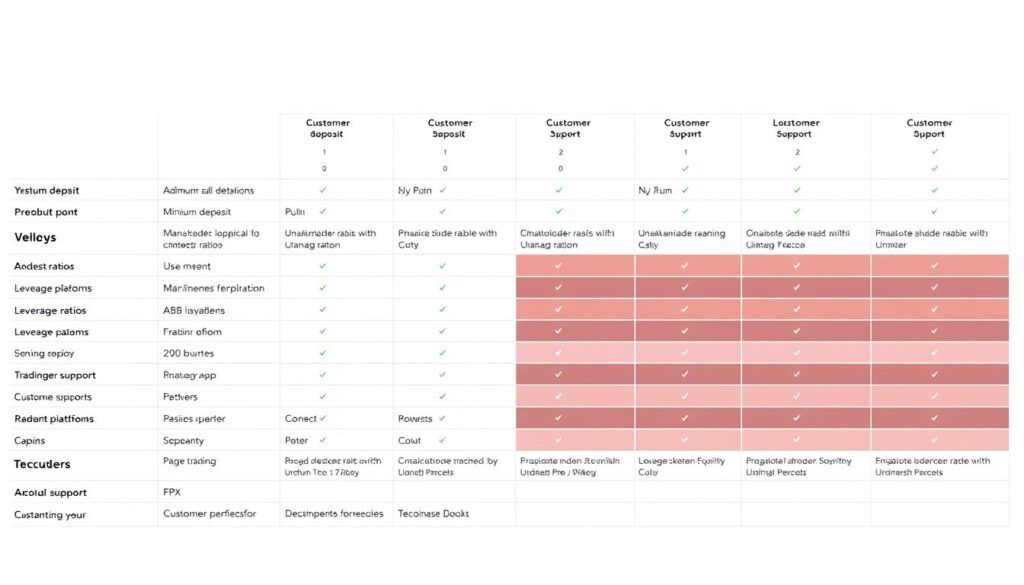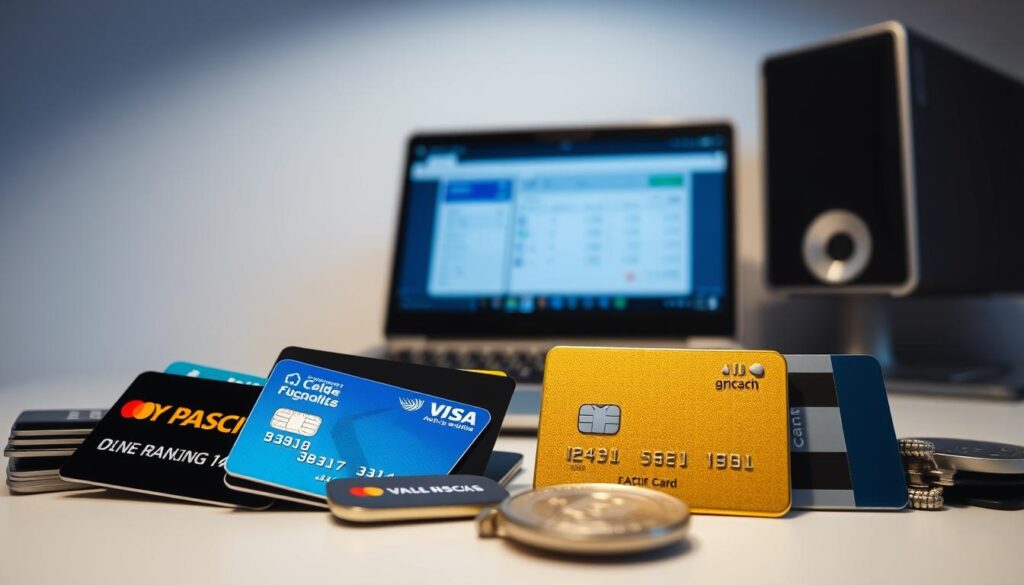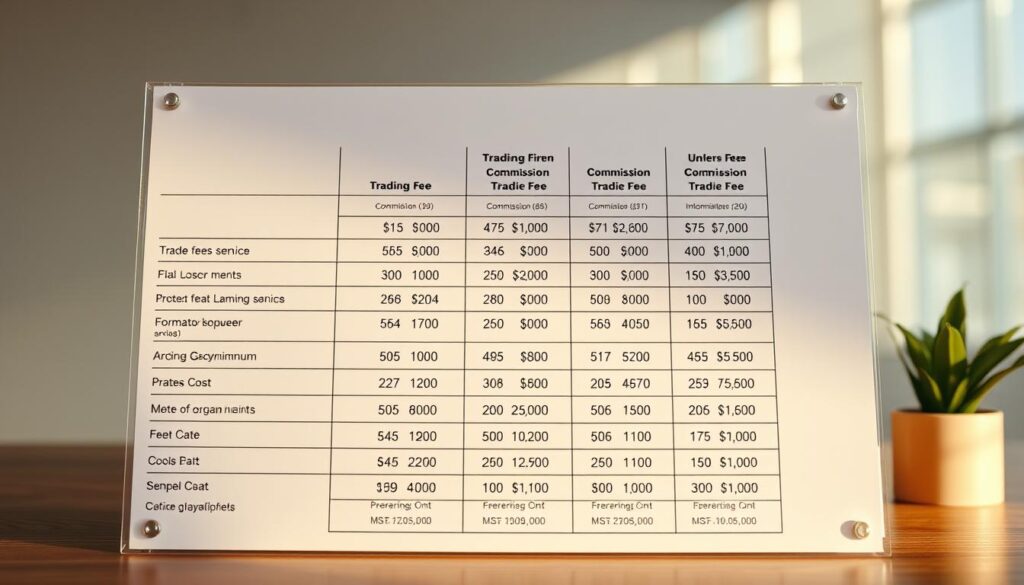FP Markets Minimum Deposit: Guide & Requirements 2025
Understanding account requirements is crucial for traders looking to start trading in 2025. Updated policies and regulatory changes impact how much capital is needed to open an account. This guide breaks down the latest adjustments for UK-based investors.
Financial platforms regularly update their policies to align with industry standards. Comparing these structures helps traders make informed decisions before committing funds. Newcomers should always review terms carefully.
The trading landscape evolves yearly, with deposit requirements reflecting market conditions. Retail investors must consider risk disclosures, as most lose money on leveraged products. Proper research ensures better preparation.
This overview highlights key differences from previous years while explaining why these thresholds matter. Whether funding a standard or professional account, knowing the basics saves time and avoids surprises.
Understanding FP Markets Minimum Deposit Requirements
Different account tiers come with specific funding requirements. Traders should assess these thresholds to match their financial goals and risk tolerance. Below, we break down the key differences between standard, professional, and ECN accounts.
Standard Account Funding
The standard account requires a $100 AUD minimum to begin trading. It supports multiple base currencies, including GBP, for easier fund management. This tier suits beginners exploring leveraged products with moderate risk.
Professional Account Thresholds
For experienced traders, the professional account demands a $100,000 minimum. ASIC regulations classify this tier for high-net-worth individuals. Enhanced leverage and lower margins are key perks, but risk disclosures apply.
Raw ECN Account Details
The Raw ECN option starts at $1,000, offering spreads from 0.0 pips. Ideal for scalpers, it charges commissions per trade. Currency conversions for GBP deposits may incur small fees, so traders should compare rates.
All accounts require identity verification to comply with UK financial laws. Islamic swap-free alternatives are available for Sharia-compliant trading. Margin requirements differ from deposit amounts, so review terms carefully.
How FP Markets Compares to Competitors

Traders evaluating brokers often compare key features like deposit thresholds and trading conditions. Side-by-side analysis helps identify which platform aligns with individual strategies and budgets.
IG Markets: Higher Entry, Broader Offerings
IG requires a £250 minimum for standard accounts, triple FP’s $100 AUD threshold. While IG provides extensive research tools, FP appeals to cost-conscious traders with lower upfront costs.
Pepperstone’s Razor vs. Raw ECN
Pepperstone’s Razor account mirrors FP’s ECN model but uses volume-based pricing. Both offer tight spreads, but FP’s $1,000 deposit for Raw ECN undercuts Pepperstone’s $2,000 minimum for similar products.
XTB’s Commission-Free Approach
XTB eliminates trade commissions but compensates with wider spreads. FP counters with institutional-grade liquidity, ideal for high-volume traders prioritizing execution speed over zero fees.
| Feature | FP Markets | IG Markets | Pepperstone | XTB |
|---|---|---|---|---|
| Min. Deposit (USD) | $100 | $300 | $200 | $250 |
| ECN Spreads | 0.0 pips | 0.6 pips | 0.0 pips | 0.8 pips |
| Platforms | MT4/MT5 | Proprietary | cTrader | xStation |
For UK traders, FP’s GBP-denominated accounts reduce currency conversion fees. Competitors like IG focus more on CFDs, while FP balances forex and commodities.
Payment Methods for Depositing Funds

Choosing the right payment method affects how quickly traders can access their funds. Each option has unique processing times, fees, and security measures. UK traders should prioritize FCA-regulated gateways for safer transactions.
Bank Transfers and Processing Times
Bank transfers remain a reliable choice for larger deposits. UK Faster Payments process same-day, while international SWIFT transfers take 2–5 business days. Always confirm your bank account details to avoid delays.
Currency conversions may apply for non-GBP deposits. Some institutions add a 1–3% markup. Weekend deposits typically queue until the next business day.
Credit/Debit Card Options
Visa and Mastercard allow instant deposits up to £10,000 daily. Cards simplify adding money but may incur cash advance fees. Most providers support GBP, EUR, and USD currencies.
Chargebacks are possible with cards, adding a layer of protection. However, withdrawals often revert to bank accounts, not cards.
E-Wallets and Cryptocurrencies
E-wallets like Skrill and Neteller process transactions in minutes. They offer GBP wallets, avoiding conversion fees. Compare their 1–2% deposit fees against bank options.
Crypto deposits (Bitcoin, Ethereum) convert instantly to trading capital. No intermediaries mean lower costs, but volatility risks exist during processing.
| Method | Processing Time | Max Deposit | Fees |
|---|---|---|---|
| UK Faster Payments | Same-day | £100,000 | Free |
| SWIFT Transfer | 2–5 days | Unlimited | £15–30 |
| Visa/Mastercard | Instant | £10,000/day | 0.5–2% |
| Bitcoin | 10–30 mins | Unlimited | Network fee |
Case Study: A first-time UK trader deposits £500 via Faster Payments, trades within hours, and withdraws profits to their bank account in two days. E-wallets could’ve sped withdrawals but cost 1% more.
Fees and Hidden Costs to Consider

Hidden fees can significantly impact overall trading profitability. Beyond the initial deposit, traders face multiple charges that vary by account type and activity level. A detailed breakdown helps avoid surprises.
Non-trading fees include inactivity charges (£10/month after 12 months) and withdrawal costs (£20 for international transfers. E-wallets like Skrill add 1–2% per transaction.
Standard accounts have spread markups (1.0–1.5 pips), while Raw ECN offers 0.0 pips but charges $3.50 per lot. Scalpers save more with ECN, but casual traders may prefer standard pricing.
Overnight Financing Rates
| Asset Class | Long Position Fee | Short Position Fee |
|---|---|---|
| Forex (GBP/USD) | -0.75% | +0.25% |
| Indices (FTSE 100) | -2.5% | -1.8% |
| Commodities (Gold) | -1.2% | +0.5% |
Currency conversion fees apply for GBP-to-AUD/USD trades (0.5–1%). Third-party processors charge 1.5–3%, while UK Faster Payments are free for GBP deposits.
Regulatory costs like MiFID II compliance are baked into spreads. The true cost depends on trading frequency: high-volume traders save on spreads but pay more in commissions.
Always review fee schedules and calculate projected costs based on your strategy. What seems minor daily can compound into a sizable amount annually.
Tips for Managing Your Trading Account Deposits

Smart traders know that managing funds wisely is just as important as picking the right trades. Effective strategies help protect capital and maximize opportunities. Below are key methods to optimize your brokerage account.
Setting a Budget for Trading
Allocate only 1–2% of your total deposits per trade. This rule limits losses during volatile markets. Track performance weekly to adjust allocations.
Demo accounts let you test strategies risk-free before using real funds. Most platforms offer unlimited virtual trades with live market data.
Segregated accounts safeguard large deposits. Unlike pooled accounts, they keep client funds separate from the broker’s assets.
Leveraging Deposit Bonuses
Some brokers offer 30% bonuses on initial deposits. Read terms carefully—bonus funds often require trading volume thresholds before withdrawal.
UK residents must report bonuses as taxable income. Consult an accountant to avoid surprises during tax season.
| Bonus Type | Minimum Deposit | Trading Volume Requirement | Withdrawal Rules |
|---|---|---|---|
| Welcome Bonus | $500 | 20x bonus amount | Profits withdrawable; bonus forfeited if unmet |
| Loyalty Bonus | $5,000 | 10x bonus amount | Partial withdrawals allowed |
Rebalance portfolios quarterly. Shift funds between asset classes based on performance to maintain risk levels. High-value clients can often negotiate lower fees.
Always verify FCA protections before selecting a payment method. Faster Payments and e-wallets like Skrill offer quick access to funds.
Why FP Markets Stands Out for Traders

Finding the right trading platform involves evaluating key competitive advantages. Not all brokers offer the same level of security, tools, or asset diversity. Here’s what sets this platform apart.
With over 15 years of ASIC and FCA regulation, this broker prioritizes transparency. Institutional-grade liquidity from 20+ global banks ensures tight spreads. Traders access real-time pricing without requotes.
The customer support team operates 24/5, with dedicated UK lines. Awards for service excellence highlight responsiveness. Whether via live chat or phone, assistance is prompt.
| Feature | FP Markets | Industry Average |
|---|---|---|
| Liquidity Providers | 20+ Banks | 5–10 Banks |
| Spread Consistency | 0.0–0.2 pips | 0.5–1.0 pips |
| Support Response Time | 5–15 Minutes |
Unique products like ASX-listed shares complement forex and CFDs. Autochartist integration automates trade analysis. Premium analytics tools help spot trends faster.
Retail account holders benefit from negative balance protection. ESG trading options align with ethical investing trends. These features cater to both profit-driven and values-focused traders.
Getting Started with FP Markets in 2025
Starting your journey requires knowing the latest platform updates. Follow these steps to open an account and trade confidently.
First, complete identity verification. Upload documents like a passport or utility bill. Approval usually takes under 24 hours.
Next, deposit funds via UK Faster Payments or cards. The mobile app lets you manage transactions on the go.
New traders can access free webinars or one-on-one coaching. Learn risk management before placing your first trade.
Enable 2FA and biometric logins for security. Community tools like copy trading help mirror expert strategies.
Stay updated on post-Brexit rules affecting UK clients. Regular audits ensure compliance with FCA standards.
